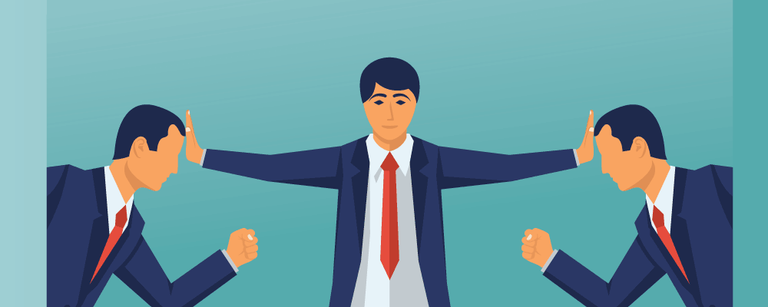How does conflict happen? What are its causes? And what can we do about it?
We live in a world where our expectations of others are constantly changing. At one point, they might have been in the same place we are now, but with the passing of time and the changes in our lives, so has their understanding of their own values and ours. We both might have our own ideas of how things should be, but with very different ideas of how that should be implemented.

There can be many reasons why these differences happen, ranging from pure misunderstandings and miscommunication to disagreements over morals or personal philosophies. However, even though disagreements can sometimes be unavoidable, they can be easily avoided through the right actions.
What makes conflict a much bigger problem than communication breakdowns? When we think back on all the times we were unhappy with someone else's behavior, we remember how hurt or angry we were. Sometimes the anger is obvious and visible, and sometimes it's hidden or unintentional. Regardless of what it looks like, it can ruin a relationship.
And if you think that there's nothing that can change this, think again. There are ways to resolve conflicts in a positive manner that leave everyone on good terms. This article provides you with the basics of conflict resolution.
Let's start with some basic definitions. A conflict is a disagreement between two or more people that requires resolution. As in, you and your friend have a disagreement. Now, you probably know what this means, but if your friend doesn't, they can learn the rest of the information here.
Conflict occurs when someone feels an emotional need that cannot be fulfilled by any other person. This can take the form of a fight, or a breakdown of communication.
Conflict also refers to something that causes harm. If you break a friendship with someone because of a disagreement, that would be considered a form of conflict. In a workplace, conflict also includes problems with work performance or job loss.
Lastly, conflict can be intentional or unintentional. This means that one person can be hurtful or offensive, while the other can be just confused or lost in thought. When people are intentionally hurting you, you can call it out as a matter of fact. On the other hand, if your boss yells at you, it's more likely an issue of unintentional conflict.
So how do you avoid conflict?
- Listen to Both Sides
It's important to listen to both sides of the story. This doesn't mean just listening to one side or the other, but taking the time to understand both points of view. By doing this, you'll find out what it is you're actually fighting about.
In the case of interpersonal conflict, it's hard to get this across to someone who isn't in your position. The only real way you can do this is by talking to them directly. Don't be afraid to say anything.
- Make Sure There's Nothing Left to Resolve. You've heard of things being left unsaid?